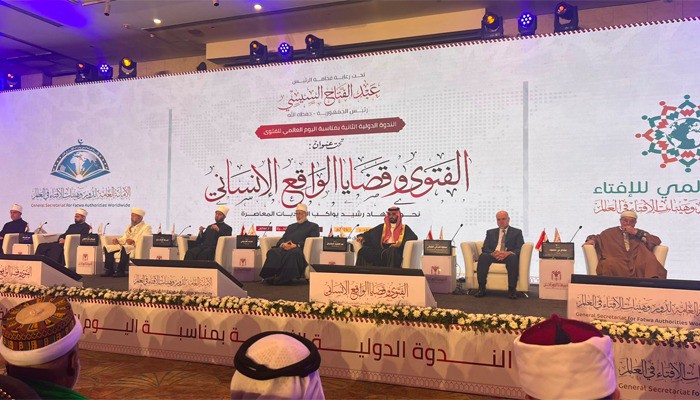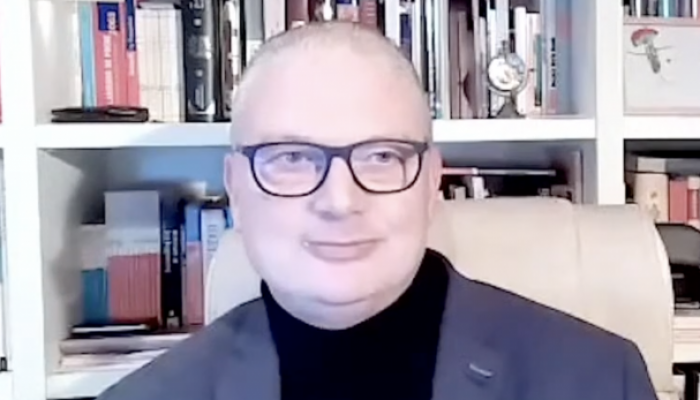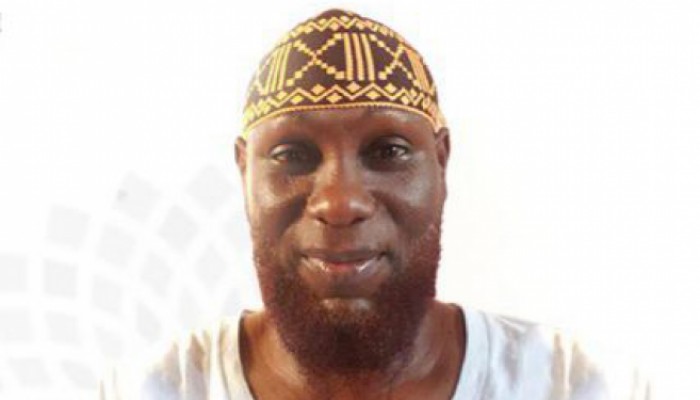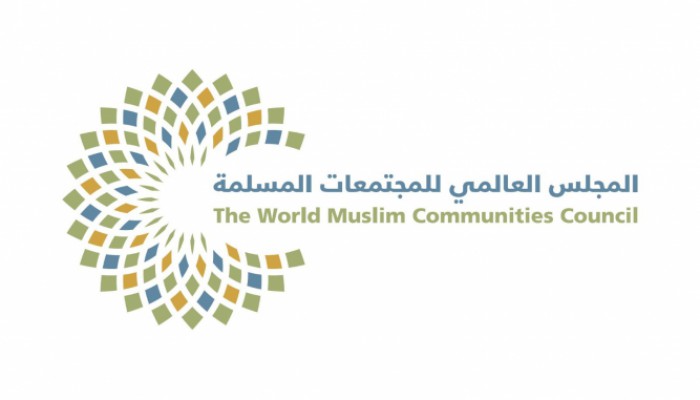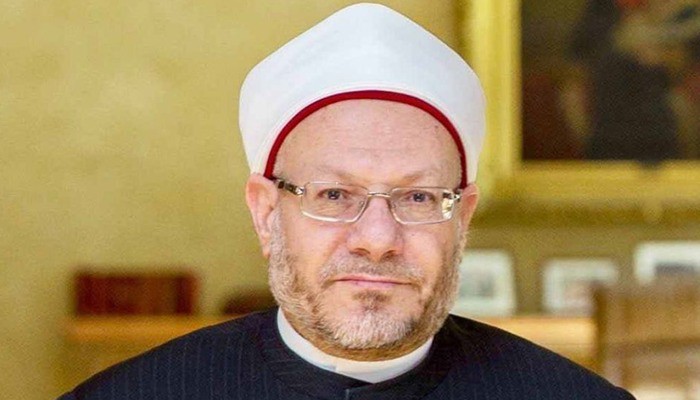
With TWMCC's Participation..Grand Mufti of Egypt Delivers the Final Statement of the 7th International Conference of Dar Al Ifta
- 2022-Oct-19
His Excellency Sheikh Dr. Shawki Allam, Grand Mufti of Egypt and president of the Supreme Council of the General Secretariat for Fatwa Authorities Worldwide (GSFOW) - announced the conclusion of the activities of the “Fatwa and Sustainable Development Goals” conference, organized by GSFOW and with the participation of The World Muslim Communities Council (TWMCC). This comes in fulfillment of GSFOW's duty towards Issues of the Islamic Ummah and other humanitarian challenges and an explanation of the role of the fatwa in dealing with them, along with the importance of supporting the sustainable development goals nationally and globally.
In his closing statement to the conference, the Grand Mufti reviewed what had been achieved through discussions and workshops in which several senior muftis, ministers, Sharia scholars, intellectuals, media, researchers, economists, sociologists, politicians, specialists in environmental issues, women’s empowerment and other issues that affect people everywhere participated.
H.E. added that the conference sessions, research, discussions, and workshops, were concerned with the legal fatwa and its influential role in achieving development for countries and societies, and how the fatwa can be a cornerstone in the reconstruction of the land, which Allah commanded.
He drew attention to the fact that the conference was keen, through its work and based on its message, to achieve a set of goals, the most important of which are: defining the nature and dimensions of “sustainable development” and highlighting its goals, principles, and elements, while monitoring the historical development of the concept of development. The goals also included defining and rooting the legitimate concept of “sustainable development” from the Holy Qur’an and the Prophet’s Sunnah, achieving evidence of sustainable development from the Qur’an and Sunnah, and consolidating the values of sustainable development in the modern state. Among the most important objectives of the conference was to analyze global and international experiences in sustainable development, clarify the relationship of the legal fatwa to sustainable development, and present solid scientific fatwas that contribute to achieving sustainable development goals.
The Grand Mufti indicated that the conference aimed at clarifying the role of the fatwa in achieving social, cultural, and environmental goals of development, especially the issue of climate change and empowering women. The first pillar of the conference discussed the role of the fatwa in achieving sustainable development goals. The second pillar presented its role in facing development obstacles. The third pillar touched on one of the most important issues of this era, which is the fatwa’s support for national economies.
On the sidelines of these sessions, HE explained that several workshops were held, the first of which dealt with the issue of “rehabilitating religious leaders to promote sustainable development goals". The second workshop discussed “integration between forensic sciences and social and natural sciences in achieving development goals.”
After his speech, the Grand Mufti of Egypt announced the launch of several important initiatives and distinguished outputs that enriched the conference's sessions and discussions. He also announced a set of recommendations and important decisions that he concluded from the proposals of the participating gentlemen, including the most prominent scholars and researchers:
First: The conference calls for permanent cooperation in sustainable and comprehensive development at all levels to reach a common goal and realistic, tangible results, including establishing offices and units that represent channels of communication between religious institutions - especially fatwas -. It also included planning and executive departments based on development projects to coordinate between them on new matters, and the fatwa has a role in it.
Second: The conference commends the comprehensive and sustainable development process that Egypt is witnessing under the leadership of His Excellency President Abdel-Fattah Al-Sisi, as well as what all Arab and Islamic countries are doing in this regard.
Third: The conference stresses the importance of permanent awareness of the seriousness of issues of bullying and infringement of privacy, and obstruction of gender equality in theory and practice, to avoid a large part of the obstacles to development. The conference also calls upon educational and legislative institutions the need to cooperate in early awareness and sequential treatment of these risks.
Fourth: The conference stresses the need to consider the rights of future human generations in sustainable development, in terms of benefiting from natural resources on the one hand, and not restricting their lives to limited fatwas on the other hand. It clearly shows that one of the most important pillars of the correct consideration of fatwa institutions is that they take into account in their research and application this noble human principle, so as not to decide today what harms humanity tomorrow.
Fifth: The conference affirms that collective action in achieving sustainable development is a human duty in the first place, and it concerns all human beings of all races, tongues, and creeds, by their common destiny of prosperity in the event of fruition of efforts, or severe misery in the event of exacerbation of obstacles and risks.
Sixth: The conference calls on all fatwa institutions to communicate with scholars and experts in the various fields of development, including education, sociology, economy, environment, space, and media. It also calls to rely on the data of digital transformation to develop the fatwa literature, and benefit from it effectively in the contemporary world to achieve the goals of sustainable development, and be guided by the experience of the world's public authorities and bodies and their leading role in this field.
Seventh: The conference calls for more attention to the processes of qualification and preparation of religious leaders and their training in observing the sustainable development goals, disseminating them, and working to support them through their roles in society.
In conclusion, HE, on behalf of the meeting, thanked President Abdel-Fattah Al-Sisi for his generous sponsorship of the conference and all those who contributed to the success of the conference, wishing Egypt and all countries of the Islamic nation and the world success, and lasting stability.




